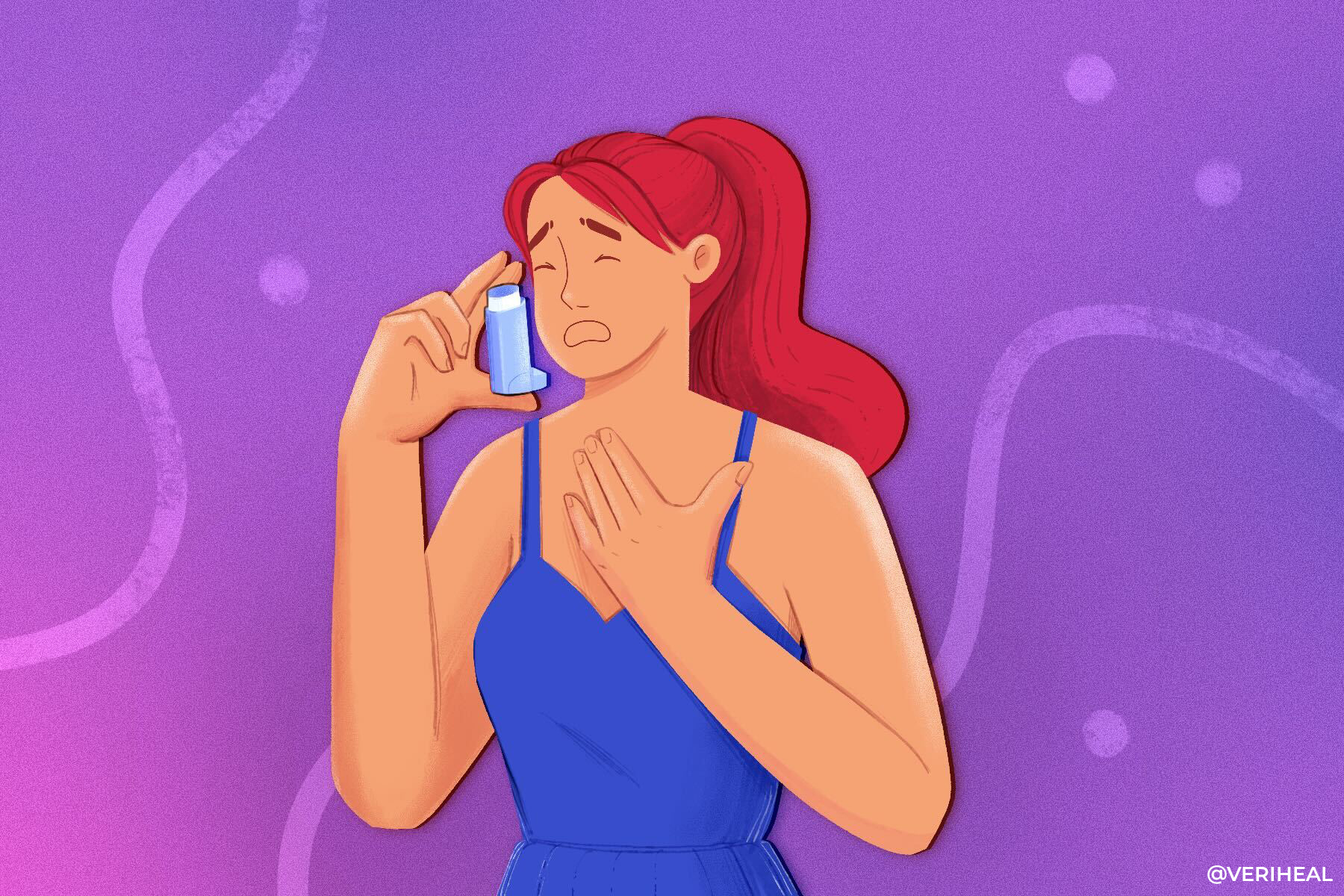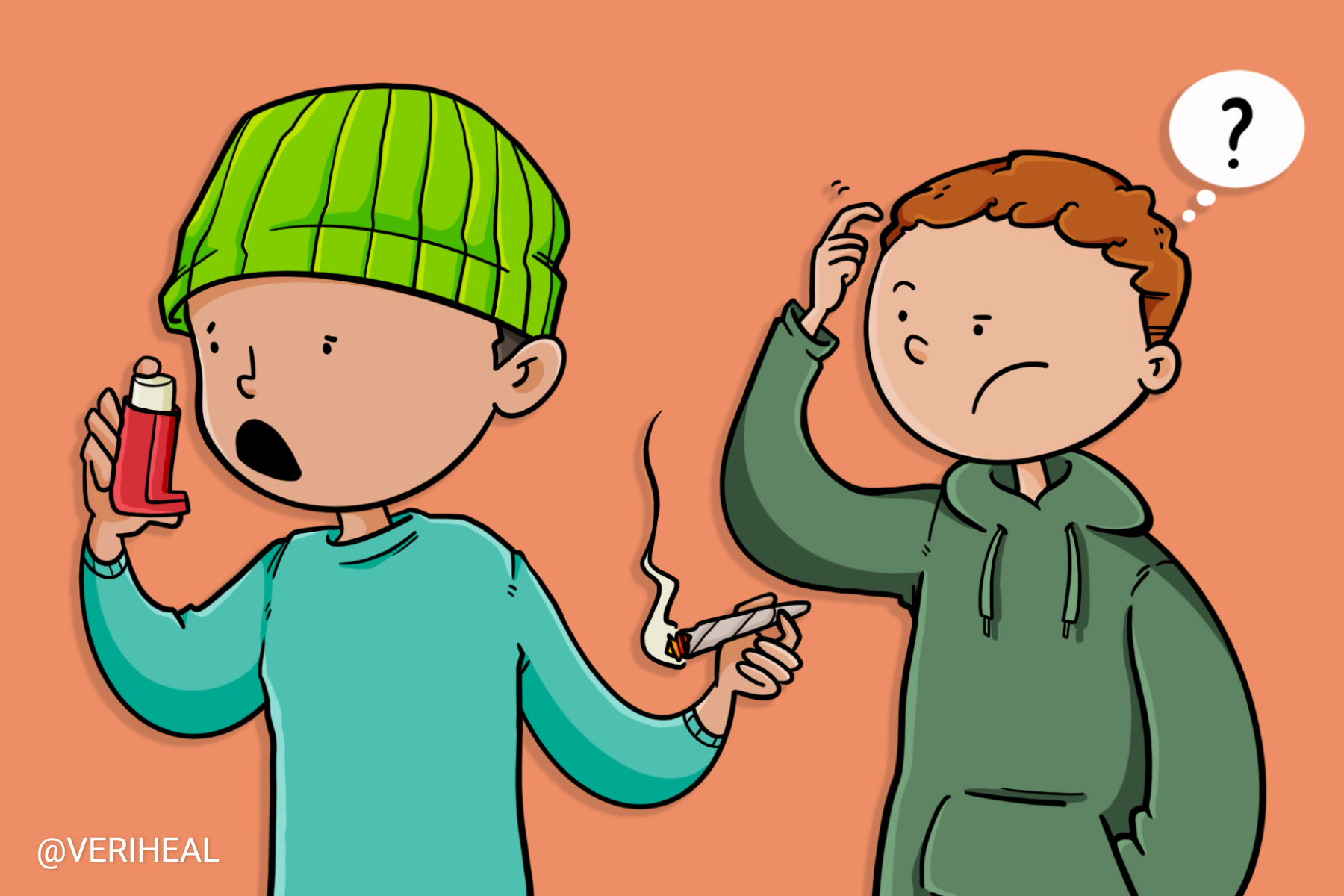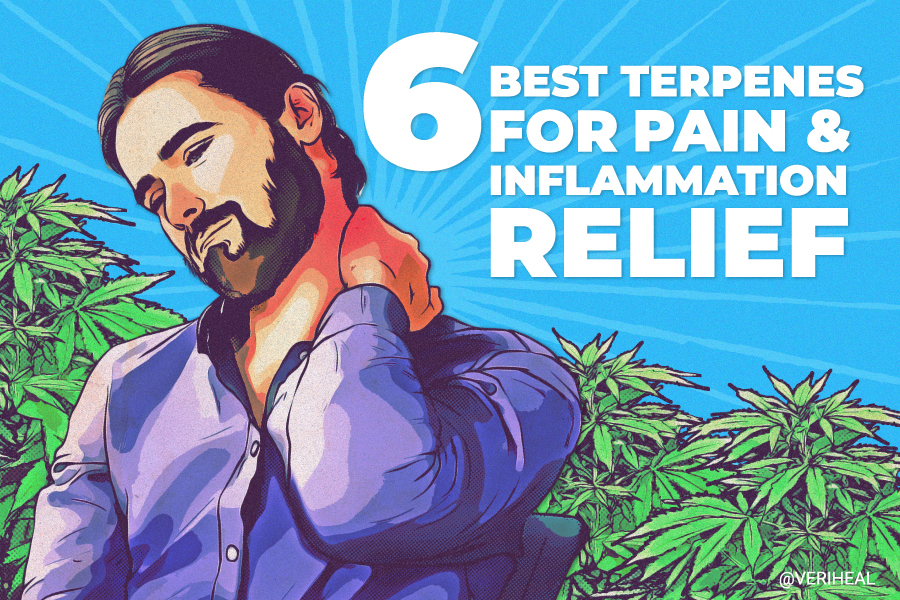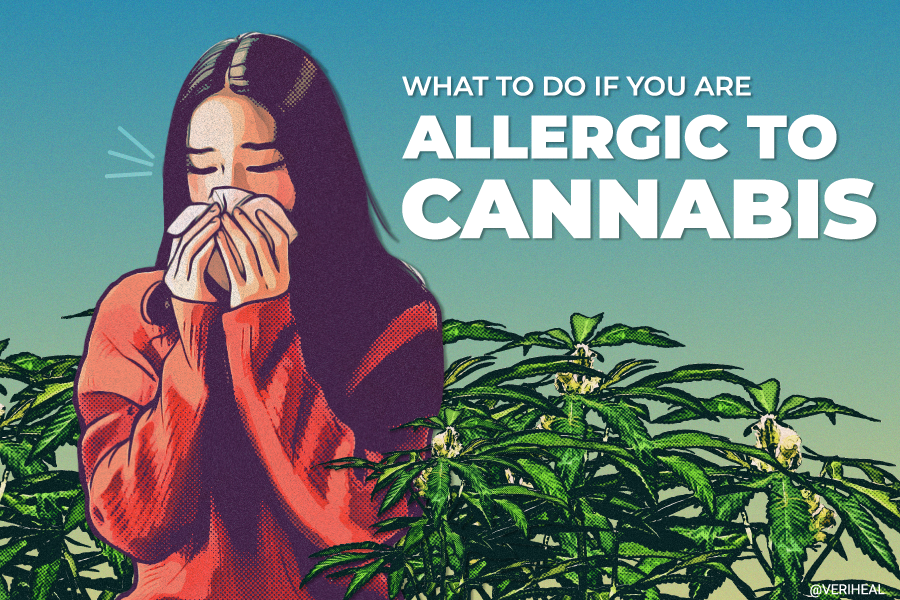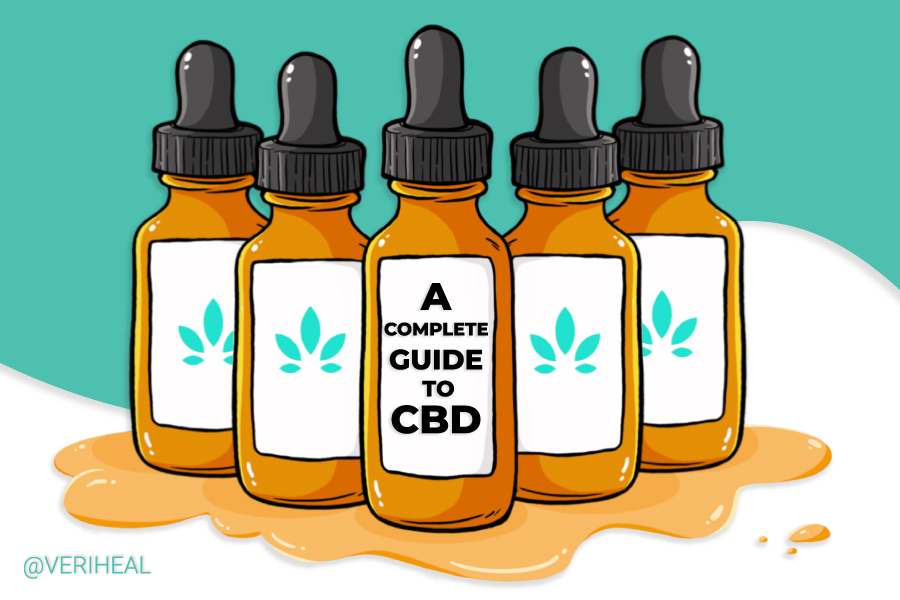Understanding the Relationship Between Asthma and Medical Marijuana

What You Need To Know: Cannabis for Asthma
While asthma patients should avoid using vaporizers or smoking cannabis as a method of consumption, alternative methods of consumption such as tinctures, edibles or topical products can provide the medicinal benefits of cannabis without smoking. These formulations of cannabis may provide symptom relief to patients with asthma.
Cannabinoids like CBD and THC work with the body’s natural system to control things like sleep and pain. Some studies suggest that CBD might help reduce inflammation and changes in the airways that happen with asthma. Other research shows that medical cannabis that has both CBD and THC could help open up the airways and lessen inflammation in people with asthma. Always consult with your doctor before making changes to your medical cannabis or asthma treatment routine.
The Science Behind Medical Cannabis for Asthma
- Can Medical Marijuana Help Treat Asthma
- Asthma Treatments
- The Effects of Cannabinoids on Asthma
- Four Levels of Asthma Severity
- Understanding the Different Types of Asthma
Asthma is a chronic disease that inflames lung airways, making it difficult to breathe. The American College of Allergy, Asthma, and Immunology reports 8.3% of Americans suffer from the condition with 6.1 million being adolescents. Every year, it results in over a million emergency room visits, almost 30 million missed school and work days, and is considered the most chronic childhood illness in the U.S (15).
Can Medical Marijuana Help Treat Asthma?
It’s important to note that asthma patients should avoid using vaporizers or smoking cannabis as a method of consumption. Vaping or smoking cannabis regularly over an extended period of time may lead to a higher risk of developing bronchitis and chronic obstructive pulmonary disease (COPD) (9).
However, when it comes to cannabis use there are alternative methods of consumption such as tinctures, edibles or topical products that can provide the medicinal benefits of cannabis without smoking, and may provide symptom relief to patients with asthma.
Asthma Treatments
Depending on the severity of the condition, asthma can be treated with inhalers, nebulizers, and long-term medications. If not treated properly, it can cause permanent lung damage due to constant coughing and wheezing, reports the Centers for Disease Control (CDC), adding one in six children end up in the Emergency Department annually due to the condition (4). Asthma exacerbations are acute flare ups of asthma that are considered medical emergencies and could be fatal if left untreated by standard-of-care asthma medications.
Asthma can be inherited, and induced or aggravated by environmental factors, including exercise, occupation, and allergies. There are several signs and symptoms of asthma, with the most common being shortness of breath and chest tightness.
Asthma Symptoms
- Shortness of breath
- Chest tightness or pain
- Wheezing when exhaling
- Disturbed sleep patterns which can lead to insomnia caused by shortness of breath, coughing or wheezing
- Coughing or wheezing attacks that are worsened by a respiratory virus, such as a cold or the flu (8)
The Effects of Cannabinoids on Asthma
There has been some research into how cannabinoids such as cannabidiol (CBD) and delta-9 tetrahydrocannabinol (THC) interact with the body’s endocannabinoid system (ECS).
The ECS is a complex feedback network found throughout the body which is responsible for regulating and balancing key bodily functions including sleep, mood, appetite, brain electrical activity, pain perception and more. It is comprised of receptors—CB1 and CB2—that are activated by cannabinoids like THC and CBD.
Airway remodeling is an ongoing structural change caused by asthma that leads to thickened airway walls and the narrowing of the airway. It can cause irreversible changes to the structure of the airway, possibly leading to blockages and long-term loss of lung function. At present, following established treatment protocols may somewhat reverse airway remodeling (2).
A 2019 study set out to evaluate the effects of CBD on airway remodeling through the mechanisms of CB1 and CB2 receptors—located in the central nervous system (CNS) and immune cells respectively—due to CBD’s known immunomodulatory effects.
“The results of the present study demonstrated that treatment with CBD was effective in minimizing the inflammatory response and structural changes that characterize the remodeling process of asthma in a murine model of ovalbumin-induced allergic asthma. These effects appear to be mediated by an interaction involving CB1 and CB2 receptor activation (22).” This means that researchers were able to reduce airway inflammation and remodeling in mice with allergic asthma, by activating CB1 and CB2 receptors.
A 2020 study published in the Israel Medical Association Journal reports case studies of three asthmatic patients who showed improvement with medical cannabis. Aside from inhaling THC and CBD, results showed that “cannabis has a bronchodilator effect on the airways and might have an inflammatory effect on asthmatic patients (7).” The authors’ literature review supports that CB1 in the lungs can regulate smooth muscle tone, and CB2 is found on lung immune cells that are responsible for modulating airway inflammation.
They also found supporting evidence of cannabis benefits for associated conditions like anxiety, exercise-induced asthma, and smoking cessation (22). A 2018 study also explored the case for CB1 receptors as a target for bronchodilator therapy for β-agonist resistant asthma (1).
Time and more studies will conclude if medical cannabis can alleviate asthma symptoms with oral or vaporized administration, giving child and adult sufferers more hope for the debilitating condition (7).
Medical Marijuana and Inflammation
There is extensive research that points to the anti-inflammatory properties of cannabinoids. Recent research has found that cannabinoids like CBD are potent anti-inflammatory agents (18). Due to this research and the fact that asthma affects the body by causing inflammation in the lungs, there has been some research looking into the potential for medical marijuana to treat asthma by reducing inflammation and thus relieving the primary irritant or cause of this condition (20).
Medical Marijuana and Insomnia
Sleep disturbances such as insomnia due to stress caused to the system from wheezing, coughing and difficulty breathing are a common occurrence amongst asthma patients.
A clinical trial in 2021 exploring treating insomnia with medical cannabis found that “two weeks of nightly sublingual administration of a cannabinoid extract (ZTL-101) is well tolerated and improves insomnia symptoms and sleep quality in individuals with chronic insomnia symptoms (23).” This trial was placebo-controlled and randomized, giving it greater evidence strength.
However, research into medical cannabis and sleep is still relatively new, and the data that does exist is still on the weaker side. Some studies have noted that long-term use of THC may inhibit sleep quality. Further investigation into medical cannabis’ potential to treat sleep disorders is needed
Echoing this, larger systematic reviews on cannabis and sleep have shown therapeutic potential for cannabinoids like THC, CBD, and nabilone for insomnia, daytime sleepiness, PTSD nightmares, and REM sleep behavior disorder. However, the overall data so far is still on the relatively weaker side and some studies note that THC in the long term may impair sleep quality (3).
Four Levels of Asthma Severity
The severity of asthma is classified into four groups. These groups are intermittent, persistent-mild, persistent-moderate, and persistent severe. To have a better understanding of these categories let’s delve into the specifics of what each level of severity looks like in patients (24).
Intermittent
Intermittent asthma is a condition where asthma symptoms occur two days a week or less with nighttime asthma flare-ups not exceeding twice a month (19).
Persistent-mild
People with mild persistent asthma experience symptoms more than two times weekly, but less than once per day. Asthma is not yet a daily factor at this stage, but it is persistent. Patients may be taking asthma medicine to prevent flare-ups.
Persistent-moderate
This stage of asthma is characterized by the daily occurrence of increasingly severe symptoms—with flare-ups or asthma attacks lasting multiple days—as well as experiencing symptoms at least one night out of the week. Daily asthma medication at this point is necessary to prevent ER trips and hospitalizations.
Persistent-severe
This stage of the condition is characterized by the occurrence of symptoms multiple times a day almost every day. Asthma patients will often experience symptoms multiple nights out of the week. Notably, this stage of asthma is the least common and may be resistant to treatment. Nevertheless, patients should regularly take prescribed medications, closely monitor their breathing status, reduce triggers, and follow up with a specialist (6).
Understanding the Different Types of Asthma
Allergic asthma
Allergic asthma is asthma that’s triggered by allergens like pollen, dust mites and pets (21). Control of coexisting allergies with other medications is important to reduce asthma symptoms.
Non-allergic asthma
Asthma patients with non-allergic asthma will often experience flareups during extreme weather events like heat waves. Symptoms can also be triggered when an individual falls ill (16).
Pediatric asthma
This asthma affects children. Parents should develop an asthma action plan with their child’s specialist for daily symptoms and any emergencies (12).
Adult-onset asthma
People who do not show signs of asthma until they enter adulthood have what is called adult-onset asthma. These asthma patients have essentially managed to avoid their asthma triggers for years and when exposed to a trigger such as chemical fumes or a pet as an adult it can unearth their asthma symptoms (10).
‘Exercise induced’ asthma
Exercise-induced asthma is also known as exercise-induced bronchoconstriction or EIB. Symptoms develop when airways narrow as a result of physical activity (14).
Occupational asthma
Occupational asthma is caused by an individual coming into contact with specific agents in the workplace such as chemical fumes or other irritants and allergens (5).
Asthma-COPD overlap
Most people with asthma will not develop COPD, and many people with COPD don’t have asthma (11). However, it’s possible to have both. Asthma-COPD overlap syndrome (ACOS) occurs when someone has these two diseases at once.
Chronic obstructive pulmonary disease (COPD) is a collection of lung diseases that cause breathing problems and obstruct airflow. This group of diseases can include refractory (severe) asthma, emphysema and chronic bronchitis (13).
Note: The content on this page is for informational purposes only and is not intended to be professional medical advice. Do not attempt to self-diagnose or prescribe treatment based on the information provided. Always consult a physician before making any decision on the treatment of a medical condition.
1. Ashton, J. C., & Hancox, R. J. (2018). The case for cannabinoid CB1 receptors as a target for bronchodilator therapy for β-agonist resistant asthma. Current Drug Targets, 19(11), 1344–1349. https://pubmed.ncbi.nlm.nih.gov/28641517/
2. Asthma Canada. (2022, January 28). Airway remodelling explained. Asthma Canada. Retrieved June 21, 2022, from https://asthma.ca/airway-remodelling-explained/#:~:text=Airway%20remodelling%20is%20an%20ongoing,term%20loss%20of%20lung%20function
3. Babson, K. A., Sottile, J., & Morabito, D. (2017). Cannabis, cannabinoids, and sleep: A review of the literature. Current Psychiatry Reports, 19(4). https://link.springer.com/article/10.1007/s11920-017-0775-9
4. Centers for Disease Control and Prevention. (2018, May 10). Asthma in children. Centers for Disease Control and Prevention. Retrieved June 21, 2022, from https://www.cdc.gov/vitalsigns/childhood-asthma/index.html
5. Government of Canada, C. C. for O. H. and S. (2022, June 21). Asthma, work-related : Osh answers. Canadian Centre for Occupational Health and Safety. Retrieved June 21, 2022, from https://www.ccohs.ca/oshanswers/diseases/asthma.html
6. Holland, K. (2019, January 28). Moderate persistent asthma: Causes, symptoms, and treatment. Healthline. Retrieved June 21, 2022, from https://www.healthline.com/health/asthma/moderate-persistent-asthma#symptoms
7. Jarjou’i, A., & Izbicki, G. (2020). Medical Cannabis in Asthmatic Patients. The Israel Medical Association journal: IMAJ, 22(4), 232–235. https://pubmed.ncbi.nlm.nih.gov/32286026/
8. Mayo Foundation for Medical Education and Research. (2022, March 5). Asthma. Mayo Clinic. Retrieved June 21, 2022, from https://www.mayoclinic.org/diseases-conditions/asthma/symptoms-causes/syc-20369653
9. MediLexicon International. (2018). Marijuana and asthma: Does it help or harm? Medical News Today. Retrieved June 21, 2022, from https://www.medicalnewstoday.com/articles/321748#marijuana-for-asthma
10. Nadolpho. (2022, April 18). Adult-onset asthma. ACAAI Public Website. Retrieved June 21, 2022, from https://acaai.org/asthma/types-of-asthma/adult-onset-asthma/
11. Nadolpho. (2022, April 18). Asthma 101. ACAAI Public Website. Retrieved June 21, 2022, from https://acaai.org/asthma-101/
12. Nadolpho. (2022, April 18). Asthma in children: Signs, symptoms & treatment. ACAAI Public Website. Retrieved June 21, 2022, from https://acaai.org/asthma/asthma-101/who-gets-asthma/children/
13. Nadolpho. (2022, April 18). Asthma-COPD overlap. ACAAI Public Website. Retrieved June 21, 2022, from https://acaai.org/asthma/types-of-asthma/asthma-copd-overlap/
14. Nadolpho. (2022, April 18). Exercise-induced bronchoconstriction (EIB). ACAAI Public Website. Retrieved June 21, 2022, from https://acaai.org/asthma/types-of-asthma/exercise-induced-bronchoconstriction-eib/
15. Nadolpho. (2022, April 18). Facts and stats – 8.3% of Americans have asthma: Acaai Patient. ACAAI Public Website. Retrieved June 21, 2022, from https://acaai.org/asthma/asthma-101/facts-stats/
16. Nadolpho. (2022, April 18). Non-allergic asthma. ACAAI Public Website. Retrieved June 21, 2022, from https://acaai.org/asthma/types-of-asthma/non-allergic-asthma/
17. Nadolpho. (2022, April 18). Types of asthma – causes, symptoms & treatment: ACAAI patient. ACAAI Public Website. Retrieved June 21, 2022, from https://acaai.org/asthma/types-of-asthma/
18. Nagarkatti, P., Pandey, R., Rieder, S. A., Hegde, V. L., & Nagarkatti, M. (2009). Cannabinoids as novel anti-inflammatory drugs. Future Medicinal Chemistry, 1(7), 1333–1349. https://www.ncbi.nlm.nih.gov/pmc/articles/PMC2828614/
19. Nall, R. (2018, November 13). Intermittent asthma: What is it and how do I treat it? Healthline. Retrieved June 21, 2022, from https://www.healthline.com/health/intermittent-asthma#:~:text=Intermittent%20asthma%20is%20a%20condition,more%20than%20twice%20a%20month
20. Sunda, F., & Arowolo, A. (2020). A molecular basis for the anti‐inflammatory and anti‐fibrosis properties of Cannabidiol. The FASEB Journal, 34(11), 14083–14092. https://pubmed.ncbi.nlm.nih.gov/32885502/
21. Types of asthma: Asthma UK. Asthma + Lung UK. (n.d.). Retrieved June 21, 2022, from https://www.asthma.org.uk/advice/understanding-asthma/types/
22. Vuolo, F., Abreu, S. C., Michels, M., Xisto, D. G., Blanco, N. G., Hallak, J. E. C., Zuardi, A. W., Crippa, J. A., Reis, C., Bahl, M., Pizzichinni, E., Maurici, R., Pizzichinni, M. M. M., Rocco, P. R. M., & Dal-Pizzol, F. (2019). Cannabidiol reduces airway inflammation and fibrosis in experimental allergic asthma. European Journal of Pharmacology, 843, 251–259. https://pubmed.ncbi.nlm.nih.gov/30481497/
23. Walsh, J. H., Maddison, K. J., Rankin, T., Murray, K., McArdle, N., Ree, M. J., Hillman, D. R., & Eastwood, P. R. (2021). Treating insomnia symptoms with medicinal cannabis: A randomized, crossover trial of the efficacy of a cannabinoid medicine compared with Placebo. Sleep, 44(11). https://pubmed.ncbi.nlm.nih.gov/34115851/
24. Elward, K. S. (2021, October 31). Asthma management guidelines: Focused updates for 2020. American Family Physician. Retrieved June 21, 2022, from https://www.aafp.org/pubs/afp/issues/2021/1100/p446.html










